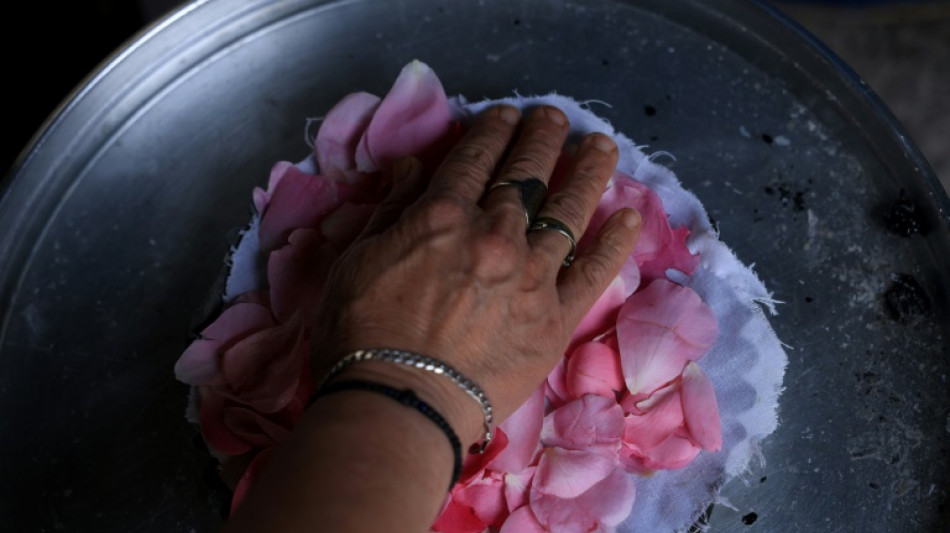

Albania town where everything's coming up roses
In Permet, deep in the spectacular Vjosa Valley of southern Albania, roses rule supreme, whether used to make perfumes, flavoured water or the Turkish delights sought out by thousands of sweet-toothed tourists.
"Here everything revolves around roses, from cooking with them to their medicinal virtues" -- everything is seen through rose-tinted glasses, joked biology teacher Ariana Nikolla.
Since she was little, the 57-year-old has been delicately picking the petals of her favourite variety, "the Groom's Rose", named for its delicate scent.
In Permet roses are a ritual -- the first gift to a would-be lover. And they have to be pink, symbolising love and fidelity.
Every family cultivates dozens of rose varieties in their garden, including the highly perfumed Damask and Provence roses, making the town famous across the Balkans for its artisanal rose water.
Yet it is almost impossible to buy -- it is just too valuable, say locals, who gift a few drops from time to time and jealously guard their reserves.
- 'Rose water is like love' -
"Rose water is like love, it must be carefully tended," said veteran maker Resmie Tuci.
"The process of making high-quality rose water is difficult and meticulous. It requires very particular copper containers and you also have to use the right roses and select the ones with the most fragrant petals," said the 70-year-old.
The traditional method, passed from one generation to the next, is listed in Albania's national inventory of intangible cultural heritage.
First you stretch a cloth over a copper bowl laced with thread, itself placed inside a large, flat-bottomed basin filled with water.
Then the hand-picked rose petals are carefully placed on the cloth and covered with a flat stone topped with hot ashes from a fire.
The petals sweat underneath and yield up their precious rose water through condensation.
"It's a process that takes hours," Tuci told AFP. "But every drop is precious," chimes in Nikolla, filling a small bottle with rose water, which she will put in a sunny spot for several weeks before it is ready.
"It's as precious as gold," she added.
- Sweet delights -
Locals use it for its supposed benefits, from soothing irritated eyes to an anti-inflammatory cream to help calm itching. And, of course, in cooking.
Eftali Qerimi, 63, swears by it.
The almond rose water cakes she bakes in her workshop are unlike any other local "llokums".
Made with only almond powder, sugar and rosewater, the rose-shaped fancies mark important events for families in the region.
Considered lucky charms, they are served at birthdays, weddings and baby showers. With the women in her workshop, Qerimi produces up to 10 kilos of Turkish delights a day, which she sells at 50 euros a kilo.
Occasionally she makes small ones shaped like baby feet -- a way, according to tradition, to wish newborns a long life.
Between batches, the women make rose petal jam, its fragrance filling the workshop.
"The rose is everything for us; it symbolises the heart, love and life's happiness," said Qerimi, who is hard at work with the tourism high season about to begin.
"Tourists flock to the town and after the natural beauties" of the valley, with its famous gorges and natural park, "they also want to taste its culinary delights", she smiled.
W.Wouters--JdB



